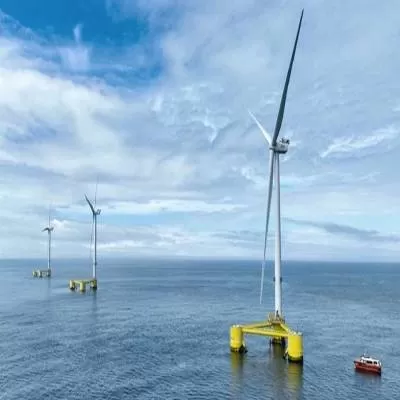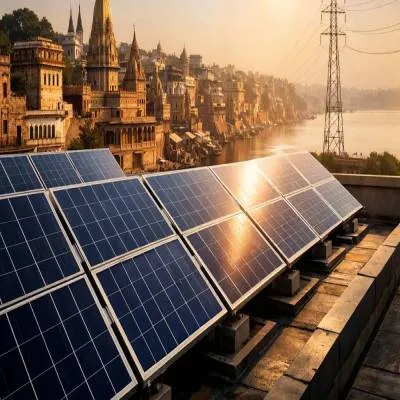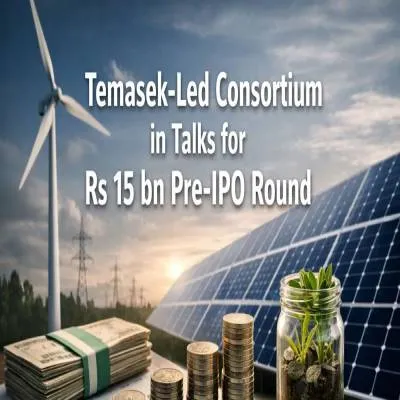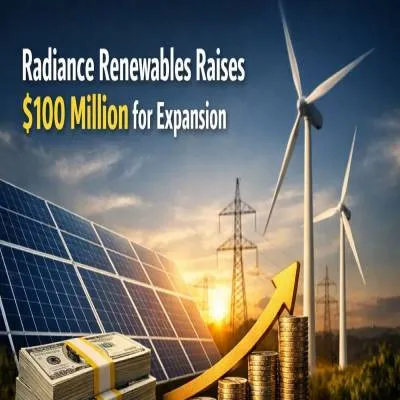Schedule a Call Back
EPTA Pushes for Offshore Wind Bidding
 The Electricity Power Transmission Association (EPTA) has formally requested the Central Electricity Authority (CEA) to implement new transmission schemes for offshore wind farms in Gujarat and Tamil Nadu under the Tariff-Based Competitive Bidding (TBCB) mode. This request was made following the agenda discussed during the 20th NCT Meeting held on June 25, 2024.
The Electricity Power Transmission Association (EPTA) has formally requested the Central Electricity Authority (CEA) to implement new transmission schemes for offshore wind farms in Gujarat and Tamil Nadu under the Tariff-Based Competitive Bidding (TBCB) mode. This request was made following the agenda discussed during the 20th NCT Meeting held on June 25, 2024.
The proposed transmission system for Offshore Wind Zone Phase-I in Gujarat involves an estimated investment of ?68.86 billion. This project includes developing a 400 kV Double Circuit (D/C) Transmission System from the Onshore Pooling Station at Mahuva to Vataman, a 400/220 kV Onshore Pooling Station at Mahuva, and a 220/66 kV Offshore Pooling Station (B3-OSS-1). The latter will involve the installation of 3-core 220 kV undersea and underground cables.
Similarly, the transmission system for the 1 GW Offshore Wind Farm Phase-I in Tamil Nadu is estimated at ?114.85 billion. This project encompasses a 400 kV D/C Transmission System from the Onshore Pooling Station at Avaraikulam to Tuticorin, a 400/230 kV Onshore Pooling Station at Avaraikulam, and two offshore substations. The connectivity of these offshore substations to the onshore station will be facilitated via 3-core 220 kV sub-sea cables.
EPTA has outlined several reasons for advocating the TBCB mode for these projects. Firstly, the timeline for these offshore wind projects is non-urgent, providing ample time for developers to implement the schemes. The 500 MW VGF project off the Gujarat coast is scheduled for commissioning by March 2028, with the tender to be published by March 2024. Similarly, the 500 MW VGF project off the Tamil Nadu coast is set for commissioning by March 2029, with the tender to be published by March 2025.
Moreover, EPTA highlights that Power Grid Corporation of India Limited (PGCIL) has no prior experience with undersea transmission projects, placing it on an equal footing with private players in terms of the technical expertise required. The competitive route for developer selection would ensure fair opportunities for both public and private entities.
The association also emphasizes the capacity creation potential, citing the government's strategy to auction 37 GW of offshore wind capacity by 2030. Allowing private players to compete in these projects would foster technical knowledge acquisition and collaborations, essential for future developments.
EPTA's request, if approved, could mark a significant step towards enhancing India's offshore wind energy infrastructure, promoting renewable energy growth, and ensuring competitive fairness in project implementation.


Subscribe Now
Subscribe to our Newsletter & Stay updated
RECENT POSTS
Popular Tags
Folliow us










